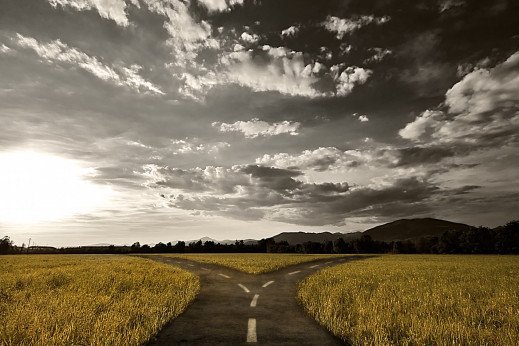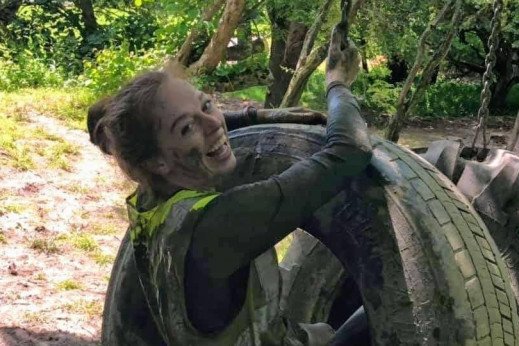I remember when I was younger asking my mum what an ‘eating disorder’ was in the car. I was about eight years old and had heard it mentioned on the radio. She said that ‘people who can't eat’ have them. I thought nothing of it after that.
When I reflect on her wording, she was so, so accurate. It wasn't until I developed anorexia in the winter of 2013 at 13 years old that I realised what it felt like to not be able to make yourself eat. To physically not be able to lift food to your mouth, no matter how hard those around you plead. ‘I physically can’t eat,’ I told the doctors. They said, ‘Fight the voices.’ I said, ‘I can’t.’ It was like something had taken over my brain and was possessing my body. I lost all my rationality, my integrity and sanity. At the early stages couldn't fight my anorexia, I fell to my knees and obeyed every word it said. It was easier to do what it said than to argue. It was easier to argue with my parents than to not do what it said. I bickered with it, sometimes endorsing it like a friend, other times screaming at it in my room alone.
My recovery was not a straight line by any means. It was a tornado of continuous ups and downs, of ‘I can’ and ‘I can’t’. Some moments I felt that things were better, that food was my friend – at other times I felt that it was my absolute enemy. Being in an inpatient psychiatric ward was one of the hardest times of my life. I had to face up to all my real problems. It felt hopeless, lonely and dark. But I did get better. My hospital stay ultimately saved my life; it gave me the tools and support I needed to fight. It was horrible and gruelling and I felt like I was going to die every minute, but I did come out. Ironically, I felt like I lost all of my control and liberty when I went in – however, when I left, I felt I had gained my life and control back.
People around me didn't understand why I wasn't getting better at times, why I didn't want to get better. I lost a lot of friends, but also gained many. It was later into recovery when I realised that starving was my coping mechanism, my emotional safety net. It was not a ‘diet’ but something much, much deeper and more complex than that. To me, starving symbolised numbness and frozenness of all feeling. It became less painful because I got so good at it – eventually it felt better to starve than to eat. To me it was a lifestyle I wanted to continue, but knew I couldn’t. That’s why recovery was so difficult.
Now, four years on, life still isn't perfect. I can say that I have recovered from anorexia. I no longer feel an odd distance between myself and those who I love or those I meet; I no longer feel that I have one foot in this world and one in another, where everything is upside down and sad. I have realised that dealing with my emotions can be achieved in so many different ways that don't involve slowly killing myself; I now have ambitions, interests and hobbies to immerse myself in. It’s when I reflect on the fact that my illness made me into a mere shell of a being, how I was merely existing rather than living, that I feel pride in my progress and commitment to remission. Sometimes when I miss anorexia, I bear in mind that it was trying to kill me, and that I now have a life to live.
Contributed by Lucy
What happens when you start to feed your brain again?
5 May 2021You have to learn how to live again and, like with any lessons, you often have to fail to learn the best way or the right way...
"Things can improve, even when it feels hopeless"
29 April 2021In the past I’ve wanted to hide the eating disorders that are part of my history, but I want to shout from the rooftops: I'm proud of how far I had come!
"This year has taught me to be kinder to myself"
21 December 2020What a year 2020 has been in general for everyone – it was a year no one ever could have imagined, from panic buying, toilet roll shortages, lockdowns and restrictions. Yet for so many, including me, the battle against an eating disorder continued.


